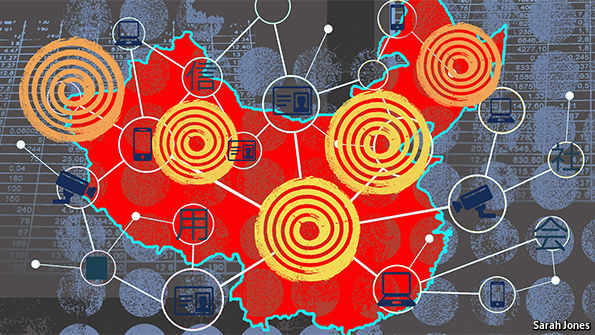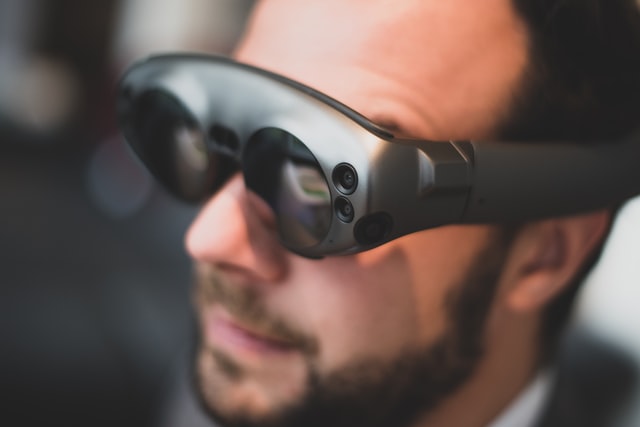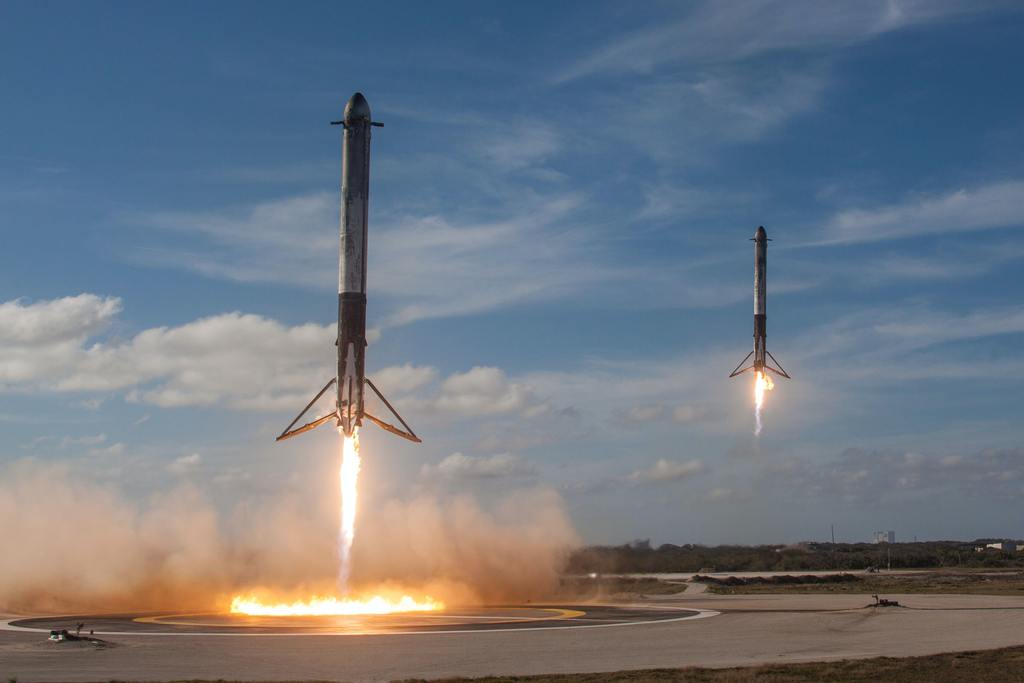With the kind of year 2020 has proven to be, it seems the next decade is going to be a particularly fast-paced and tumultuous one. To keep us all thinking about where we want the world to go over the next 10 years, here are 20 futurist predictions for 2030.
I’ve split them into two groups: the first 10 are trends that we are currently seeing emerge that will likely continue; the second set are a bit more speculative, albeit still based on things that we are seeing today.

- Internet censorship is going to get much, much worse
Although many people feel that internet censorship, ‘fact checking’ and de-platforming of those deemed to be problematic is a necessary evil, it is also an approach that will almost certainly have unintended consequences.
It is all but certain that the next decade will see a tightening on discourse online. This will be coupled with rapid retribution on those who are deemed too contrary to the social norms of the time. The first signs of this have already emerged, with tech-companies censoring and ‘fact checking’ an increasing number of topics and people. The attempt to then create ‘fairness’ means that the net needs to be cast ever wider and encapsulate more and more forms of discourse and online activity.
All signs are pointing to things only getting worse from here and the next decade will see a huge shift towards massive online censorship that is near-instantaneous and coupled with increasing penalties (whether legal or social) for those who try to find ways around it.
- Physical media will be mostly abolished
This one is relatively easy to predict, but still interesting to see how it plays out. The first shift away from physical media came with music and the rapid popularity of digital piracy and then streaming; followed by the rise of PC-gaming platforms such as Steam and its competitors. The new generation of gaming consoles have foreshadowed this even more for the living room, with both disc-based and digital-only versions of the consoles available for purchase and indicating we are in a transitional phase.
By 2030 physical entertainment media will be aimed squarely at the collectors market, with key exceptions being vinyl for music and books which will still compete for a long time with their electronic counterparts because of their innate qualities over digital versions. Videogames and movies/TV shows, however, will be digital only in an almost seamless transition. The interesting thing will be: what happens to your library of purchases when a platform goes down?

- Public Access Apps
The drive for aggressive forms of contact tracing to mitigate the pandemic has had concerning outcomes. Although this started with the notion of apps that people would voluntarily use, which were intrusive enough, it has developed in two ways: firstly, the call for centralised data exchanges that link together all kinds of different personal data into one searchable database; secondly, moves towards requiring certain criteria being met (such as proof of vaccine) before being allowed to enter a premises or travel internationally.
Even though these moves aim to halt a dangerous virus, they are also tools for citizen control that will be used in other areas of our lives beyond the current health crisis. This prediction isn’t a positive one about how technology can help us overcome this challenge, but rather a concern about the seeming inevitability that we will have apps on our phones that will be required in order to receive many goods and services that we take for granted today (similar to the social scoring apps in China). Protocols like this will slowly, but surely be expanded to incorporate more social mandates. That is not a bright future to exist in, but unfortunately it’s increasingly looking like one that will come about by 2030.
- Hobby Boom
There hasn’t been much positive economic news in recent months (other than the fact that our billionaire oligarchs have gotten much, much richer), but one that did catch my eye was the profitability surge that hobby companies have seen as people are trying to find new ways to stave off boredom during lockdown.
Many people are realising that tech addictions can only take us so far and we now have the time to try out hobbies long drawn to, but always put on the back burner. An increasing number will stick with their new hobbies even after we have returned to a post-pandemic life, which will bring a whole host of benefits from stress relief and mindfulness to creative output that others can enjoy.
The economic devastation caused by the pandemic means that people don’t have much expendable income, of course, but not all hobbies are expensive. It’s encouraging to know that people are escaping into the fulfilling experience of creative acts and handiwork as an alternative to expensive nights out at restaurants, theatres, bars and nightclubs.
- Digital fingerprinting becomes the norm
Tied in with the growing push for online censorship and public access apps is the idea that our online presence should be verifiable at all times. Proponents argue that it will combat the issues of trolling, harassment and other unpleasant or abusive realities of how people behave when able to hide behind anonymity. But by placing an identity-wall in front of popular online platforms we will also be exacerbating the chilling effect currently seen in regards to political activism, identity formation and other forms of legitimate social discourse.
Our online activities are not only increasingly monitored, but limited into more and more specifically defined boundaries of discussion and content. Yes, people can always choose to opt out by not participating; but that means they aren’t allowed to take part in a key component of human expression and endeavour in the 21st century. Despite all this, it seems likely that by 2030 many of the more popular platforms, at least, will require real-world identification.
- Cryptocurrencies become mainstream
People don’t easily forget being burned. Even though purchasing Bitcoin has been a profitable decision on 95%+ of the days in its 11 year history, it sometimes feels like the majority of people seem to have done so on one of the few days it was not. Either that, or they’ve missed the boat entirely and are a bit salty so now it’s all tulips and beanie babies. The speculative mania that was the cryptocurrency boom in 2017 has hidden the fact that this is a truly revolutionary technology and that Bitcoin in particular is now situated to provide a never-before-seen decentralised network capable of some amazing things.
All of this has needed time to percolate, with many of the world’s brightest people working away behind the scenes developing the second/third-layer technologies that Bitcoin or Ethereum will require to truly live up to potential. In the same way that the huge number of hollow companies in the dotcom boom and bust masked the fact that the internet was a game-changing technology, cryptocurrencies are here to stay and the next ten years will see them mature in ways many people didn’t think was possible.

- VR will become a mainstream experience
Virtual Reality always seems to be on the verge of breaking through, but never quite finds a way to be accessible enough to do so. Initial forays into the technology were woefully inadequate, but in the past five years we’ve seen a competitive market emerge with multiple different headset manufacturers and a growing number of high-quality gaming and other immersive experiences.
The next decade will finally bring this into the mainstream, with advancements in smartphone technology allowing graphics processors powerful enough for immersive VR to be carried in our pockets; while the systems available for people at home and in bespoke arcade environments will feel mind-blowingly real.
- 3D-printing will serve retail consumers
Everyone can intuitively understand 3D printing, but the technicalities of actually doing it are still out of reach for most people both logistically and financially. When this is coupled with the fact that ultimately what you are talking about with consumer-level 3D printing is producing various kinds of plastic or resin items, it’s not surprising they haven’t really taken off as quickly as people might have thought. Materials are becoming cheaper and printers more reliable and user-friendly, though, so it’s only a matter of time before they capture the imagination of the general public.
There’s a high chance this could take place within the context of retail stores (whether physical or online), rather than each home owning their own 3D printer, and we’ve already seen the trend emerge with online retailers that will print goods for you based on either model blueprints they list or that you provide yourself. With print times reducing with each passing year, it’s also increasingly likely that we see large retailers bring in ‘3D print shops’ to cater for walk-in consumers.
- Drones, Drones, Drones!
We’ve long known the drones were coming, but it seems like 2020 was the year when it all suddenly tipped. Unfortunately, it wasn’t really because of news of flying deliveries from Amazon (who received FAA approval in August); but rather what caught everyone’s attention was the use of drones for surveillance of COVID protocols around the world. Even worse than surveillance, we saw multiple examples of drones being used for enforcement practices – verbally chastising people that were outdoors and breaking protocols.
Hopefully these examples of low-flying surveillance/enforcement drones are put on the backburner and the focus is instead on retail use, which would be supported by the huge boom in online ordering currently taking place. I think we all know, however, that the surveillance isn’t going to stop and our skies will be filled with an increasing number of drones whose purpose is to catch us out.
- YouTube competitors will emerge
YouTube will not always be the dominant video-sharing platform of the internet. As impossible as that sounds now, we know it is inevitably true but likely far off into the distant future. However, there has been a growing sense of discontent among content creators on YouTube regarding how they are treated by the company, combined with growing criticism of Google for how they are censoring or penalising certain types of content.
There is an opportunity bubbling up that many companies would be delighted to get even a small piece of; and some of them are trying to do just that. Unfortunately the niche focus of some of these alternatives will only serve to further polarise online discourse as it drives people deeper into political echo chambers.
Consumer loyalty shifts quickly and there are always new content creators out there looking to make a mark in a less saturated environment. It’s likely that by 2030 we see YouTube lose significant amounts of market share not to one monolithic competitor, but rather a whole bunch of smaller ones that emerge to cater for different interests and subcultures.

11. We will discover alien life
Given everything that 2020 has thrown us so far, many people are expecting this announcement to happen by the end of the year. There has been a growing amount of research on the potential for life on asteroids and other planets in our solar system, along with a consistent stream of reports about unknown radio signals or discoveries of water sources. As our ability to collect data and physically explore off-planet advances, so to do the chances that we will legitimately discover alien life.
This is likely to be microscopic or perhaps fungal in form, of course, but it will still be one of the most significant shifts in human identity to occur since the discovery that the Earth revolves around the Sun. However the announcement arrives, it seems likely that the discovery will be made in the next decade and we can begin to unravel just what that means for our shared identity and collective endeavour.
12. Government policy will become more science-driven
Governments around the world have been notorious for ignoring scientists in favour of receiving advice from legal advisors, financial institutions and powerful lobbying groups. With the COVID-19 pandemic, though, perhaps that is changing.
Policymakers should have realised by now that without actually listening to the scientists that are appointed to key positions in committees and advisory boards (to then be promptly ignore at every turn), the decisions they make tend to have detrimental effects due to unintended consequences that were relatively predictable by those paying close attention to the data.
When you factor in the pressing emergency that is climate change, it seems essential that government policy becomes more science-driven. Without such a proactive shift towards data-driven policymaking, everything else that might be considered – from economics, to public health, even geopolitical stability – could be hugely impacted with disastrous result.
13. The War on Drugs will end
When I made some futurist predictions in 2010, one of them was that drug policy around the world would be softened – which is exactly what we have seen in many countries, including most recently the surprising vote in Oregon to decriminalise all drug use. This will likely go even further through 2030 and we will see a decriminalisation of all recreational substances (not just cannabis) including ‘hard drugs’ such as heroin and cocaine: effectively ending the ‘War on Drugs’ in favour of more medical and therapy-based interventions.
There are four key reasons to end the War on Drugs: a) it isn’t working; b) there’s lots of tax money to be made; c) it’s the only real way to combat the cartels; and d) addicts are better served by public health programmes than prison sentences. Depending on which country you are talking about, these four reasons will have different weightings; but by 2030 it seems likely that the War on Drugs will be all but over and we can properly address the underlying causes and issues rather than throw fuel onto the fire.

14. AI will lead most industries
Artificial Intelligence is going to be more deeply embedded across many sectors and industries than most people realise. We’re starting to get a glimpse of this now, with examples highlighting how AI can be used as the backbone of areas from journalism and medical diagnosis; through to supply chains, education and the legal sector. There are huge advancements to be made over the coming decade in our attempts to construct artificial sentience, but perhaps more importantly it will be the less fantastical but more immediately applicable areas in which AI will shine.
This will particularly be the case with anything that requires oversight of processes that are rote and mechanical, but carry a huge amount of data to consider: such as how supply chains distribute goods or smart utility grids that can supply efficiently throughout a national economy. In a similar way, perhaps, that we are now used to having an auto correction algorithm running at all times, these integrated AI’s will make many tasks more seamless and efficient with less errors involved.
15. UBI will be widely implemented
Chalk this one up as another case of ‘never going to happen’ in 2019 and now in 2020 is not only being discussed in many countries openly; but has actually been implemented, whether through small test cases in Finland or one-off stimulus solutions to a growing call for some form of UBI to be implemented to stave off the post-COVID economic crisis currently emerging. With unemployment reaching nearly unfathomable levels and little hope on the horizon, it seems inevitable that some form of Universal Basic Income (whether or not it is called such) will be implemented in most major economies to avoid a complete societal breakdown.
It’s strange to think how quickly this concept went from a fringe idea discussed in small groups of economic policymakers and activists; to gaining the main stage for a while through the efforts of Andrew Yang during the Democratic Party primaries in the US; to one that is now discussed as imminent by many politicians across the Left/Right spectrum. Universal Basic Income is an idea whose time has come and will bring with it a lot of emotional and creative freedom to many suffering under the grind of basic economic existence in unprecedented times.
16. People take back their Privacy and Data
If the past decade was a rush to give away all of our personal data, the next decade will be all about people figuring out how to claw it back. We’re already seeing indications of this with the widespread use of VPNs for internet-use (although it’s important to know they’re not all created equal); but also with the popularity of search engine alternatives such as DuckDuckGo and browser alternatives such as Brave that are geared towards user privacy and security.
Social media platforms are having to do more to allow users to opt out of tracking and data collection (even though this is mostly window dressing); and everyone has quickly learned the importance of security for work-related activities with video conferencing platforms such as Zoom, which now offers end-to-end encryption due to user demand. There’s a long way to go to reclaiming our personal data sovereignty, but the trends are heading in the right direction and more people are becoming technically savvy enough to follow through.

17. Cold War in Space
If you’ve been paying close attention to the areas of space exploration and technology, it has become clear that there is a new space race that is not being fully shared with the public. This seems to be one that is being done with a level of subterfuge, combined with an urgency that points to something much more serious and threatening. The newly formed US Space Force (and its UK counterpart) is one indication of where this is going, as is the vast amounts of funding being provided to private space companies in both the US and China. There has also recently been news of Russian space-weapons being tested that shows the overall trend towards armament in space is progressing considerably.
All of this calls back to the original Cold War and Reagan’s ‘Star Wars’ Defense programme called the Strategic Defense Initiative (SDI). It seems like the anxieties of a previous era are coming to fruition and unfortunately, given the way that geopolitics remains so adversarial, it doesn’t look like the next decade will be an amicable one. Some might think that the Cold War never really ended and the many conflicts we are seeing around the world are a result of ongoing, unofficial warfare between world superpowers.
This is, of course, true; but the difference when it comes to space is that there aren’t any proxies to hide behind, so escalation in this domain becomes a direct one-on-one confrontation between the world’s most powerful nations.
18. Boom in Fringe Religion
Some commentators are forecasting that we will see a return to traditional religion as people seek a renewed sense of meaning in our post-digital age; and there has seemingly been a turnaround in some interesting areas such as Cathedral congregation sizes and festival attendance figures in institutional religions such as the Church of England. However, it will be the more dynamic religious groups that will be able to adapt to our rapidly changing world while still providing for the same impulse as established religious organisations.
This will have both positive and negative manifestations. Times of global turmoil and unrest lend themselves to the predatory behaviour of religious cults and fraudulent gurus of all kinds. However, they also offer a space for genuine seekers who are looking for alternatives to search for new ways of organising and understanding their lives.
There’s also a need for variations of more traditional religions that are more welcoming to identities of all kinds, rather than being a source of animosity. Unfortunately, we will also see the flipside of groups that seek to exploit and profit from poverty and desperation. This means that religious groups that are able to spread an authentic message of peace, love and acceptance will find themselves in an important position to help guide humanity through what is likely to be a difficult time to come.
19. Weird History Discovery
It’s not always about looking forwards into an unknown future, there’s also so much to discover about our past and where humanity has come from to get to this point. By 2030 there will likely be a paradigm shifting discovery about the past, whether that be about lost civilisations that have been previously unheard of; unearthed evidence that drastically changes our view of accepted historical timelines; or perhaps the unmasking of something in our more recent past that has been kept under wraps.
There are many holes in our knowledge of the past that are being filled and could unlock entirely new ways of thinking of human civilisation. It will be fascinating to see what might be (literally) unearthed in the coming years.
20. Water Scarcity Conflicts
One of the overlooked challenges of the 21st-century is the conflict and turmoil that will result from severe reductions and scarcity in our drinking and agricultural water. This is an issue that will come to the forefront in the next ten years as people and governments begin to see the urgency of the issue and its consequences.
It is said that the next World War will be fought over water and this is a hugely complex topic that deserves a great deal of careful scrutiny and egalitarian planning. Even if we can avoid all out war over water, we can be certain that a great deal of desperation, conflict and displacement will revolve around this issue in the coming decade.

Closing Thoughts
It’s always interesting to put down predictions, because looking back on them you get a better understanding of where our biases (and blindspots) lie. In this day and age, new technologies or modes of being can emerge out of nowhere and take over seemingly overnight; we just have to think of the rise of the smartphone in the last 10 years and everything that has brought, for better or worse. The real truth, though, about forecasting only 10 years ahead is that the results are mostly already set in motion. This is particularly so when considering things on the scale of geopolitics that takes years to shift gears.
The predictions made on this site in 2010 turned out to be mostly correct. Let’s see if this new set of 20 futurist predictions for 2030 will come to fruition, or perhaps something will disrupt these trends in currently unforeseen ways. Given that many of them presume we are going down some pretty negative paths, I certainly hope that many of them prove to be wrong!
One final thing I can predict is that Future Conscience will be here in 2030 to find out…





